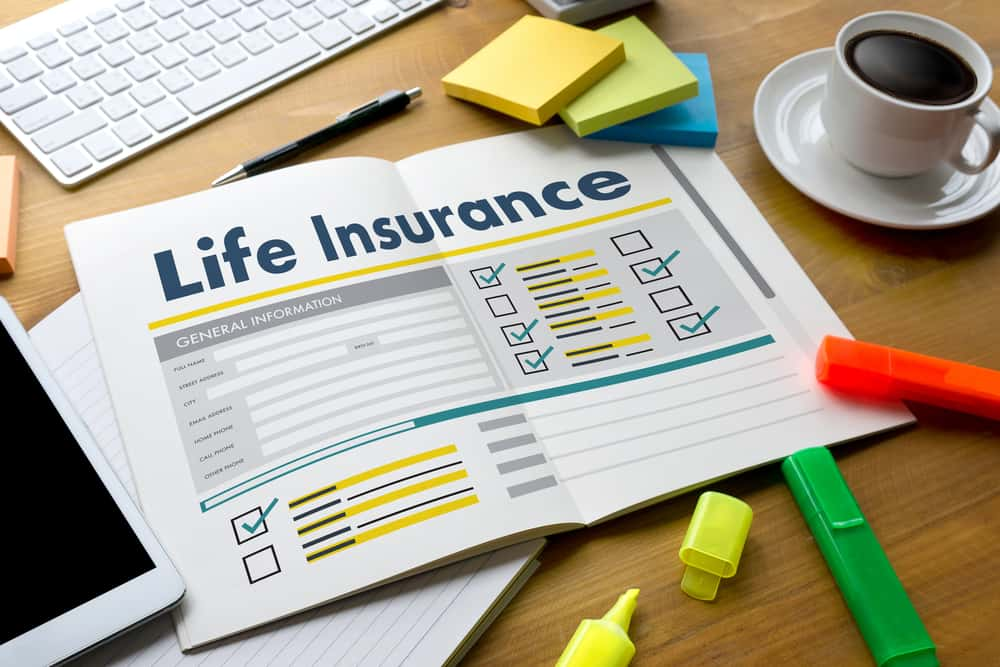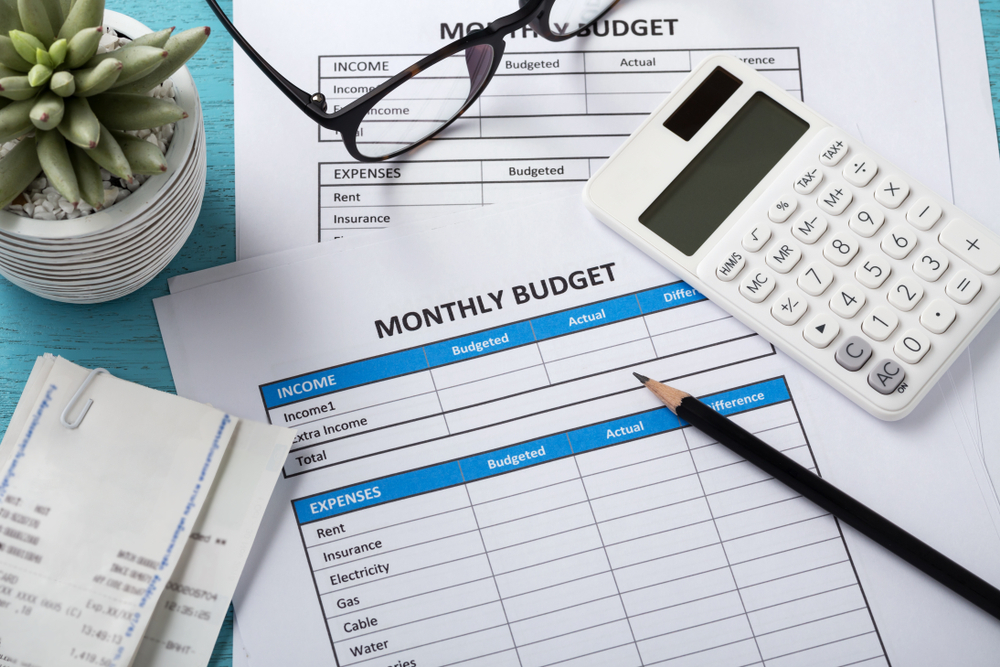Don't Make These Money Mistakes If You Want To Keep Your Retirement Savings
You've worked all your life for your retirement savings, but a few critical mistakes could see your retirement savings dwindle to zero, and your limited retirement income might not be enough to sustain you. At worst, you may be forced to come out of retirement and take a part-time job to make ends meet. Don't make these money mistakes to keep your hard-earned retirement income.
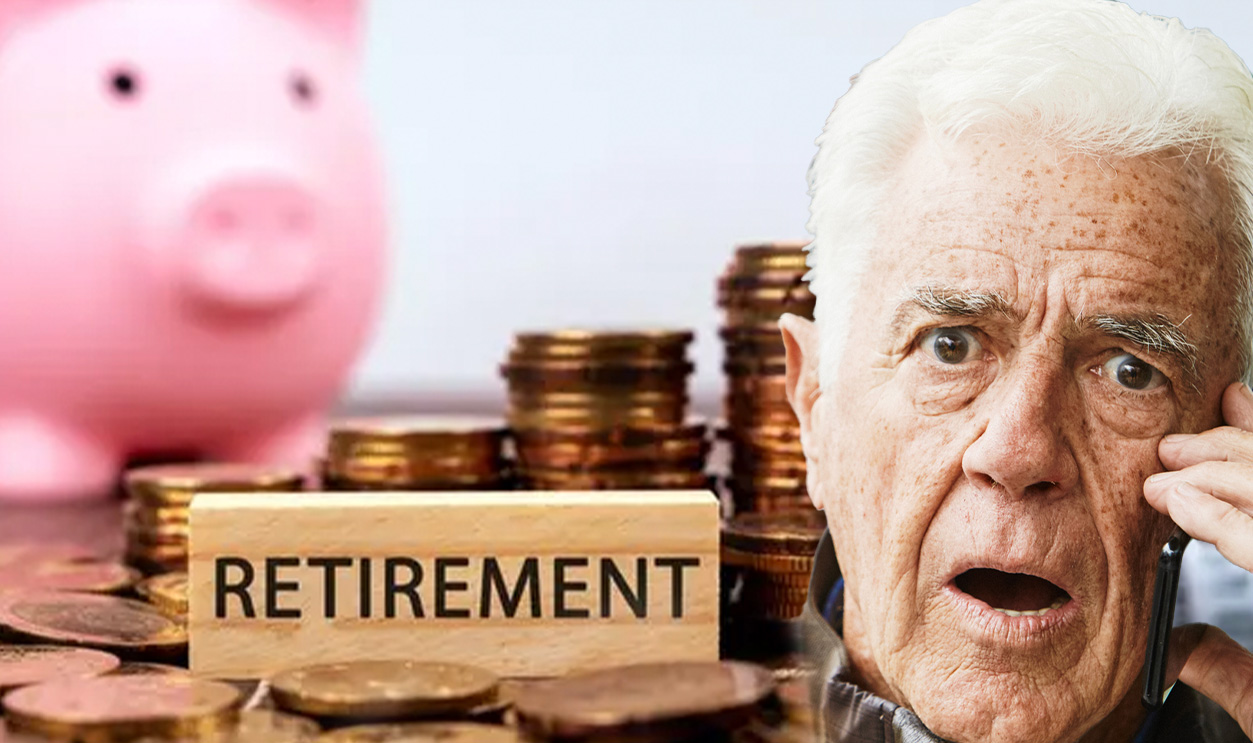
Not Taking Advantage Of Seniors' Discounts
Seniors' discounts are one of the nice things you get as part of the over-65 club. Don't let your pride get in the way of a good deal—you could save between 10% and 20% off products weekly from various retailers. Check your local retailers so you do not miss out on the savings.
Make Use Of Your Local Library
Most libraries offer free membership to those over the age of 65. If you make limited use of the internet, or are an avid reader (or both!), you could use your free library membership to access the internet and/or gather books to read at home. You can also print documents at your local library, meaning you won't have to spend money on a printer, paper, or ink.
 Helena Jankovicova Kovacova, Pexels
Helena Jankovicova Kovacova, Pexels
Cashing Out Your Investments Too Soon
As the old adage goes, "Time in the market beats timing the market". While it may be tempting to cash out your investments in retirement, holding your investments until you need the money will give them more time to grow. You could also leave your investment portfolio to a significant other or relative in your will.
Paying Too Much For TV
Cable TV may be a simpler solution now that you're in retirement, but it costs you far more than other streaming services. If you find that you're not watching much TV, but are still paying for cable, then maybe it's time to ditch your cable and switch to watching a couple of single channels, like HBO, or Netflix if you're into movies.
 Photo By: Kaboompics.com, Pexels
Photo By: Kaboompics.com, Pexels
Buying Life Insurance
There are lots of different opinions about life insurance in the finance world. Some swear by it, others say it isn't worth it. While life insurance can be useful, it becomes more expensive the older you get, meaning less money in your pocket every month. However, life insurance can be a useful utility for extra income in retirement.
Maintaining A Large Home Unnecessarily
The large home in which you raised a family could cost you big time as you get older; utility bills and other maintenance costs aren't going to decrease anytime soon, and the larger your home, the more you'll pay for everything. If you've paid off your home, consider downsizing by selling the house and buying a smaller, more suitable home, or even using the money from the sale to rent an apartment.
Traveling During The Busiest Times Of Year
Of course, it's always nice to travel to see the grandkids at Christmas, but it also means traveling during the busiest time of the year, which is the most expensive travel time. Consider traveling during other times of the year to reduce your travel expenses.
 Andy Dean Photography, Shutterstock
Andy Dean Photography, Shutterstock
Claiming Social Security As Soon As You're Eligible
Although you may be eligible for social security benefits at the age of 62, it may benefit you to wait until you turn 66 or 67 to begin withdrawals. Taking social security earlier than you have to can lead to diminished returns in retirement. In general, those who take their social security at 62 receive up to 25% less in benefits over the course of their life.
Not Kicking A Bad Habit
You may have had a bad habit since you were a teenager, but here you are, still doing it in retirement. Failure to kick this bad habit before you retire could cost you thousands of dollars a year. On average, the American smoker will spend nearly $2,000 per year on their habit.
Keeping An Extra Vehicle You Don't Need
One of the many pluses of retirement is that you don't have to work anymore! So, why not enjoy it? This means you don't have to keep two vehicles to go to and from work, as your significant other may also be retired. Even if they're not, you are, so there's no need to keep a second vehicle. Just use one and cut down on maintenance and gasoline costs by half each year. We're not talking about your classic muscle car, we get it, those are special.
Not Adjusting Your Levels Of Investment Risk
Alongside their pensions and social security income, many older people have investments in the stock market. If it's been a few years since you looked at your investment portfolio, it may surprise you to learn how much risk you're still taking on. As you approach retirement, you should consider reducing your risk, or at least spreading it around some.
Low-Risk Investment Options For Retirees
There are a number of low-risk investment options for those who don't want to cash out just yet. These can include certificate of deposit accounts, wherein your money is locked away for a specific period and earning a fixed amount of interest. The second low-risk option is to buy Treasury Bills, these are guaranteed by the US government. The third low-risk option is to invest in a basket of stocks called an Exchange-Traded Fund, or ETF.
Not Keeping An Eye On Your Tax Situation
Your tax situation changes when you turn 73, as the IRS requires you to take out a "required minimum distribution", or RMD, from your 401(k) and tax-deferred retirement account. These are mandatory and cannot be avoided—but they could push you into a higher income tax bracket, meaning you'll pay more on your social security income, regular income, and long-term capital gains.
Talk With A Tax Specialist
If you're worried about how much tax you'll pay in retirement (when you're supposed to be paying less taxes, as your taxable income is supposed to be reduced), it's important to consult with your accountant or tax specialist, to see which is the most efficient way for you to manage your tax burden in retirement.
Failing To Use A Roth IRA
Roth IRAs are one of the greatest retirement tools Americans have. But many Americans don't use this type of account, or aren't using it to its full potential. Even though it's called an "Individual Retirement Account," it's really an investment account. Both contributions and gains within a Roth IRA are tax-free, even upon withdrawal.
More On The Roth IRA
And it's because both gains and contributions are tax-free that the government has imposed an annual contribution limit on your Roth IRA. If you're under 50, your Roth IRA contribution limit is $7,000, but if you're over 50, it's $8,000. One catch: your Modified Adjusted Gross Income (MAGI) must be under a certain limit to contribute the full amount possible, as your Roth IRA has been gaining contribution room since you turned 18.
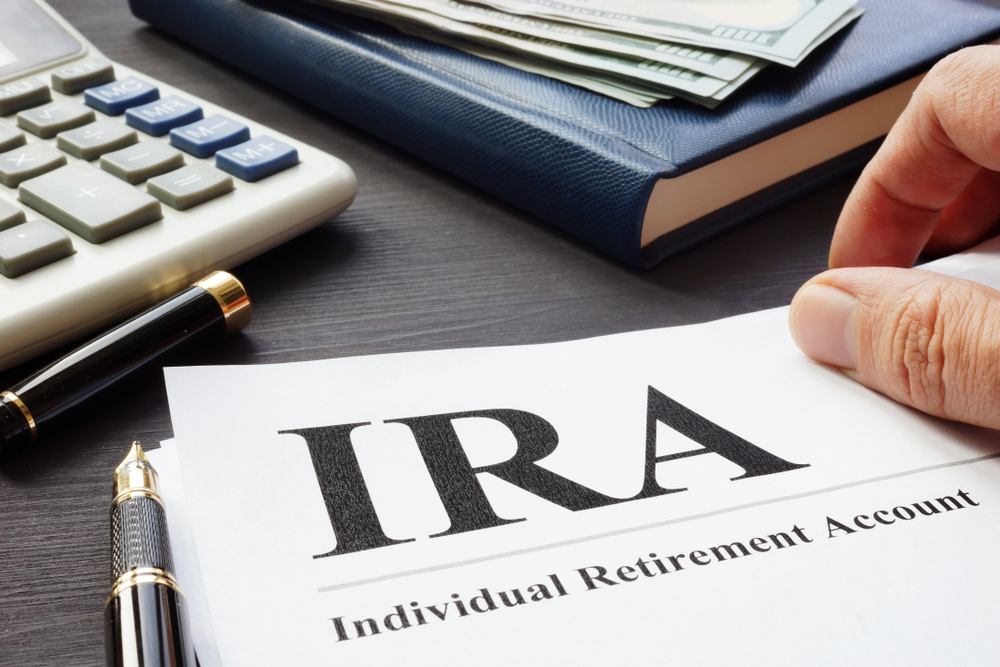 Vitalii Vodolazskyi, Shutterstock
Vitalii Vodolazskyi, Shutterstock
Spending Too Much On Prescription Medications
Americans pay some of the highest prices in the world for prescription drugs, but you could be spending too much money on prescription medication when the generic brand will do the same job. Generic brands of prescription meds still need to go through FDA approval, but can cost up to 85% less than their name-brand counterparts.
Giving Your Money To Every Charity You Come Across
While we all have causes that are near and dear to our hearts, sometimes charity organizations prey on the elderly, as they're the most likely to give money. While generosity is almost never a bad thing, it might be a good idea to limit the number of charities you give to each year and to always check the charitable status of the "charity" you're giving to.
Not Budgeting Effectively, Or At All
While you might have been used to a salary that paid all of your bills and then some, that's not always the case in retirement. You might not have needed to budget when you were working, but now that you're retired, you have to make your limited income stretch as far as possible. Perhaps you're running a little short every month, or you're not budgeting at all.
It's Time To Start Budgeting!
If you're not budgeting at all, then it's time to start. Not only will budgeting give you an overall financial picture of what your monthly expenses really are, but done right, you could be looking at saving money, thanks to your budget.
Use A Budgeting App—Or If You're Old School, A Pen & Paper
If you've got a smartphone and you know how to use it, then try and use a budgeting app to help create your first budget. Your banking application may contain a budgeting function. Try and use this first. If not, download a simple and free budgeting app. Or, if you're old school, write things out with a pen and paper. You may start off by building a traditional-looking budget: income - expenses = what's left over. Instead, try a zero-based budget.
What Is A Zero-Based Budget?
Instead of traditional budgeting (formula above), zero-based budgeting proposes that every dollar be given a purpose. Whether that's retirement savings, vacation savings, credit card debt payments, mortgage payments, or whatever it may be. By giving every dollar a purpose, you should be left with $0 at the end of every month.
 Vitalii Vodolazskyi, Shutterstock
Vitalii Vodolazskyi, Shutterstock
What's The Benefit Of Zero-Based Budgeting?
Zero-based budgeting offers a few things that traditional budgeting doesn't necessarily offer. The first is an increased control over finances. Because you've given every dollar a purpose, you've taken complete control over every dollar of retirement income you make. Another benefit is that you're more intentional with your spending, resulting (hopefully) in being more careful with your money.
Forgetting To Sign Up For Medicare
We all know how expensive healthcare is in the United States, but when you turn 65, your healthcare coverage greatly increases thanks to Medicare. Unfortunately, there's just a seven-month window after you turn 65 to sign up for Medicare. After which time, you'll be assessed a 10% penalty for each year you're late in signing up.
Relying Too Heavily On Your Investments
There's no such thing as a golden goose when it comes to investments. The very worst thing you could do with your years of investing is to put all of your eggs into one basket. King of investing Warren Buffett preaches asset diversification. Whether you're investing in stocks, bonds, mutual funds, or a basket of funds like an ETF, if you rely too heavily on your investments, you may watch your retirement go up in flames if the stock market crashes.
Supporting Your Adult Children Too Much
We all love our children and would do anything we could to help them out. While things certainly are much more expensive now than when boomers were growing up, retirees do have a tendency to help their adult children too much, at the expense of their own retirement. Be wary of giving your children too much financial support and not leaving enough money for yourself.
Don't Over-Shop
Despite having more free time than you know what to do with, it's important that you stick to your budget and not over-indulge on shopping for expensive items. Sure, you want to enjoy your retirement, but you need to realize that you only have limited funds and buying expensive items while out on a shopping trip could lead to you eating through your retirement income faster than expected.
Plan For Large Expenses
One way to shop for enjoyment is to plan your large purchases carefully. Sure, you don't have to spend your time obsessing over every small purchase—but if you're going to go on a senior shopping excursion, put a little away every month and make it a bi-annual or quarterly event!
Home Remodelling Rather Than Downsizing
Just because you finally have the time to put in the new kitchen you've always wanted, or re-paint the outside of the house, doesn't mean you should do it. Consider, is it really a wise financial decision? Sure, you could spend the money beautifying an already beautiful home, but is it really adding value? If not, would downsizing be a better option?
 Monkey Business Images, Shutterstock
Monkey Business Images, Shutterstock
Is It Time To Sell & Downsize?
Rather than putting money into your home that's already relatively high in value, might it not be a good time to cash out on your home? Maybe sell and use the funds to travel extensively, or even buy a smaller property? Too much house means larger expenses in the long run. Consider downsizing instead.
Co-Signing On A Loan For A Family Member
While helping out a family member in a pinch is fine, along the same lines as loaning large amounts of money, co-signing on a loan with them might be a bad idea that could land in financial hot water if they default on the loan. Under no circumstances should you put your retirement income on the line to sign onto a large purchase loan.
Going Into Credit Card Debt
Up there with the "worst financial mistakes you can make" as a retiree is going into credit card debt. Retirement is supposed to be the place where you live debt-free, not use your credit card like a debit card to make purchases. If you must use a credit card, ensure you pay it off as soon as possible and avoid credit card debt at all costs. It'll eat your retirement savings alive.
Underestimating Your Medical Costs
While Medicare does cover many prescription medications, far too many aren't covered, leaving their costs to be absorbed by the seniors who need them most. Be careful not to underestimate your medical costs, you could run bills into the thousands of dollars without meaning to, very quickly.
Paying Unnecessary Fees
It all adds up. Whether you're paying a financial advisor to manage your investments for you, or just paying a few dollars per month in bank fees, explore alternative options to your banking and switch to a zero-fee bank. Or, educate yourself a little bit about your investment portfolio and take on management all by yourself. You can use alternative platforms that charge much lower investment management fees than a traditional bank.
Not Having A Financial Plan
Many retirees will retire without a financial plan in place as to how they're going to retire. What does their retirement income stream(s) look like? How do they plan to pay for their daily lives? What about their investments? What will they do with other assets? Having a detailed financial plan will save you time and money later on in your retirement, but starting retirement without one could cost you dearly.
Not Having A Financial Plan That Accounts For Inflation
Whilst it is difficult to predict the future, any decent financial plan—drawn up with the help of a professional—will try to make predictions about what the inflation rate will look like moving forward, and how that will affect your finances. Your money doesn't go as far during high inflationary periods, so any financial planning should account for that possibility.
Not Having An Emergency Fund
It is absolutely critical that you retire with a healthy emergency fund. Building an emergency fund is like giving yourself a financial safety net should something go wrong that requires an immediate injection of cash. A fully funded emergency fund typically accounts for between three and six months of expenses. You need to retire with an emergency fund, so that you avoid going into debt when a crisis strikes.
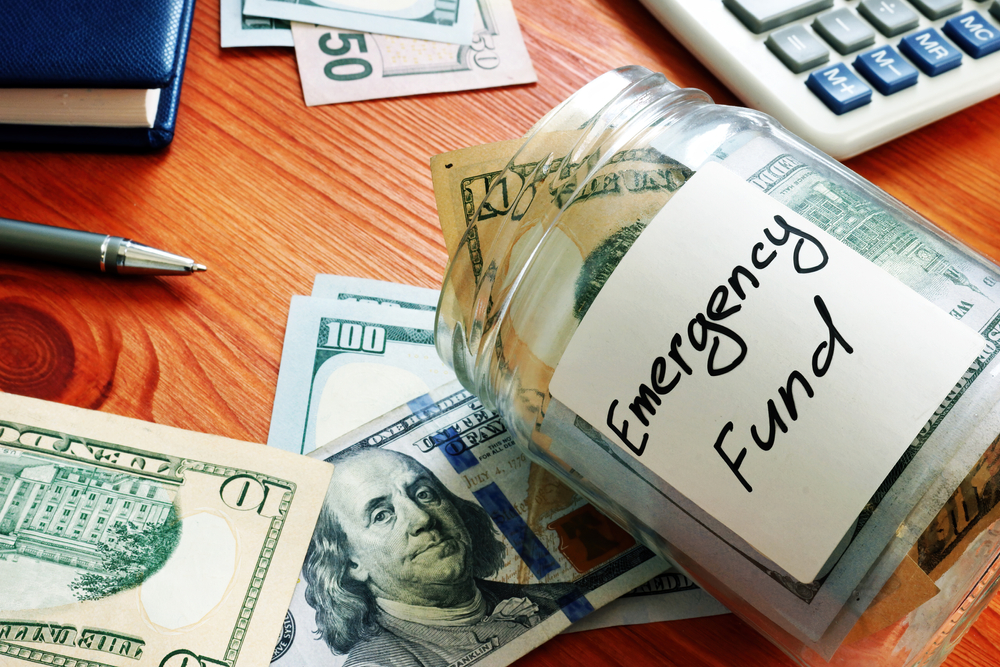 Vitalii Vodolazskyi, Shutterstock
Vitalii Vodolazskyi, Shutterstock
You May Also Like:
10 Ways To Increase Your Net Worth Without A Six-Figure Salary
The Best Lessons Your Children Can Learn From You About Money




